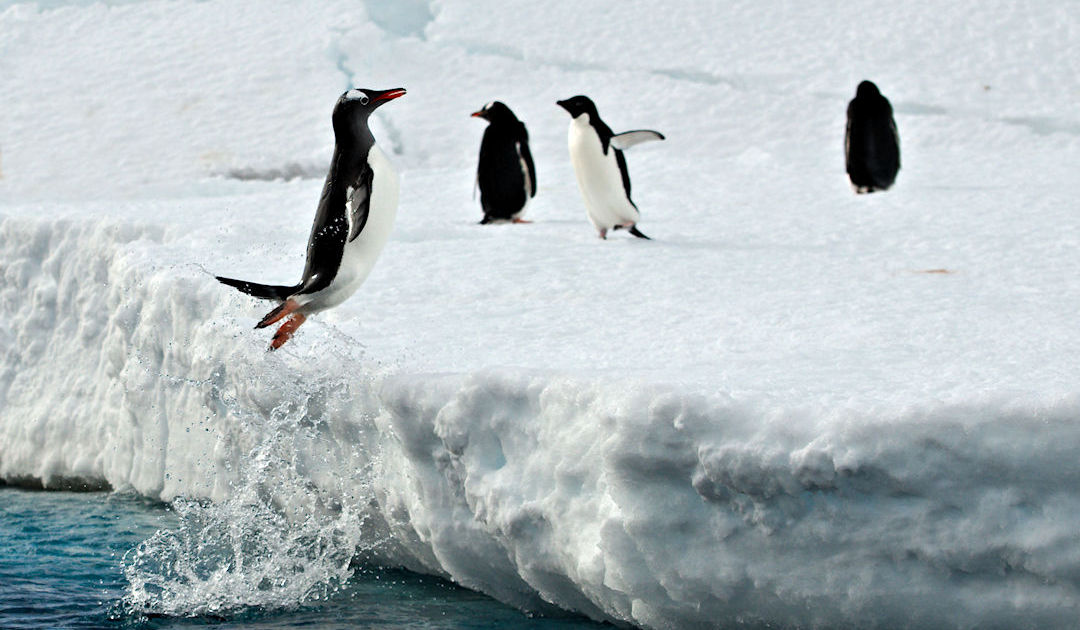
The polar retrospective takes up events of the past week that are related to the Arctic and Antarctic and focuses on one or more aspects. In this edition, the focus is on leaps in time, on the one hand on the scale of seconds, caused by the ice melting in the Antarctic, and on the other hand on leaps through time in the far north of Canada.
For many people, time was of the essence last week thanks to the upcoming Easter holidays and the change to summer time on Easter Sunday. For some, it ran quickly (due to the anticipation of lots of chocolate and celebrations with family, friends and relatives), for others it ran rather draggingly slow (for example at the checkout of crowded stores or in traffic jams on the way to a vacation).
Time was also an issue in polar regions last week, particularly in the wake of an article published midweek in the scientific journal Nature. In it, author Duncan Agnew from the Scripps Institution of Oceanography showed that the melting of the ice sheets in the Antarctic and Arctic has slowed down the Earth’s rotation. As a result, the next “leap second”, a compensation in human timekeeping due to the irregular rotation of the earth, is pushed three years into the future, but must be subtracted at the same time instead of being added. This causes waves of sweat to form on the foreheads of some researchers.
In the past, science teams and computer specialists have had to work out how to add a second to the systems. This problem arises due to the fact that the Earth’s rotation is slowed down by the gravitational pull of the moon on the oceans, but at the same time has been accelerated by changes in the currents of the Earth’s liquid core. As a result, an extra second had to be added to human timekeeping every few years.
However, thanks to the melting of the ice sheets in recent decades, scientists noted a shift in mass towards the equator and the rotation has slowed down more than the acceleration. Therefore, one second must be deducted next time, which means that for UTC, one minute will only last 59 seconds for once. Experts in the fields of metrology and computer science, as well as the “timekeepers” at the International Bureau of Weights and Measures in France, are still unsure on how this should be achieved.

The people of Nunavut in Canada’s Arctic north take a completely different look at the aspect of “time” on their territory. It is celebrating its 25th anniversary and with it 25 years of self-governance and a great deal of responsibility. In the media, this anniversary provides ample opportunity to look back on the path that the region, which is mainly inhabited by Inuit, has taken. And although 25 years may not seem like a long time, the list of achievements is already very long. Great leaps forward have been made, particularly in terms of living conditions and infrastructure, and the population is growing. Today, over 40,000 people are living in Nunavut (2021: 26,745), almost three quarters of whom are under 40 years old.
At the same time, however, many Nunavummiut are somewhat apprehensive about the future. In the meantime, the problems have also increased and time is often seen as the biggest enemy, whether it is the long time spans for administrative and government decisions (at federal and regional level) or the ever shorter time span between extreme events caused by climate change; the long waiting times for medical treatment or the shorter periods of frost. Thus, time plays a different but equally important role here, even if it’s not a fraction of a second and it has to jump forwards or backwards.
Dr. Michael Wenger, Polar Journal
Link to the study: Agnew, D. (2024) Nature March 27, A global timekeeping problem postponed by global warming, doi.org/10.1038/s41586-024-07170-0





